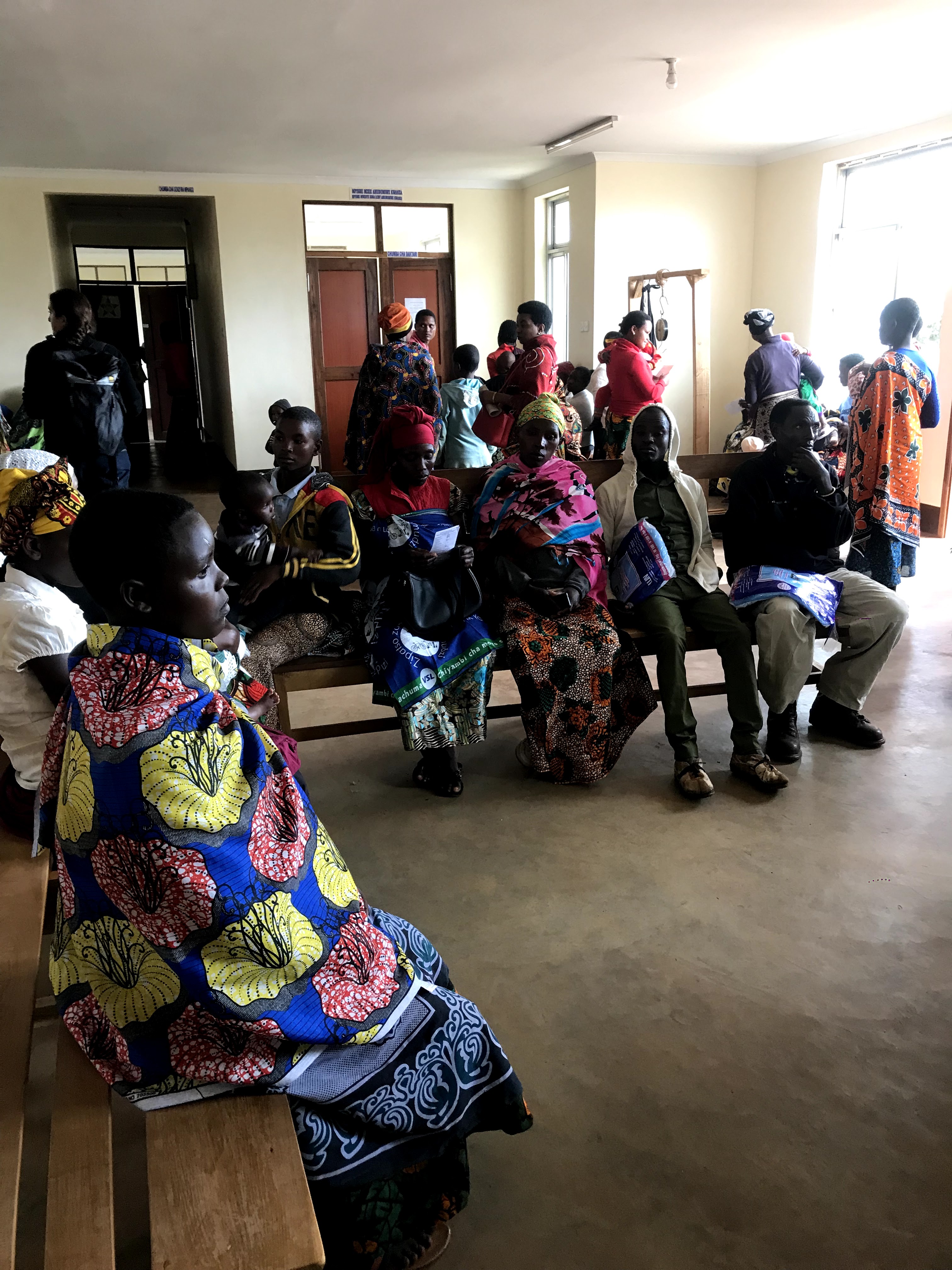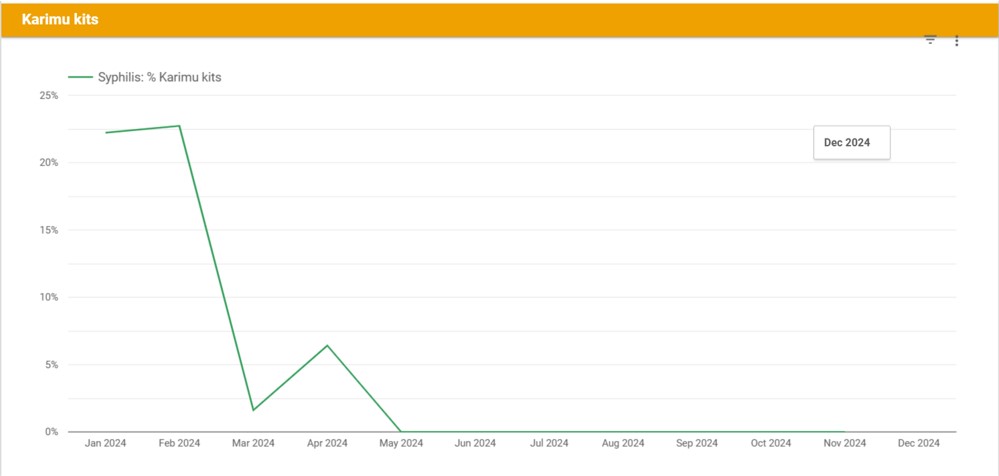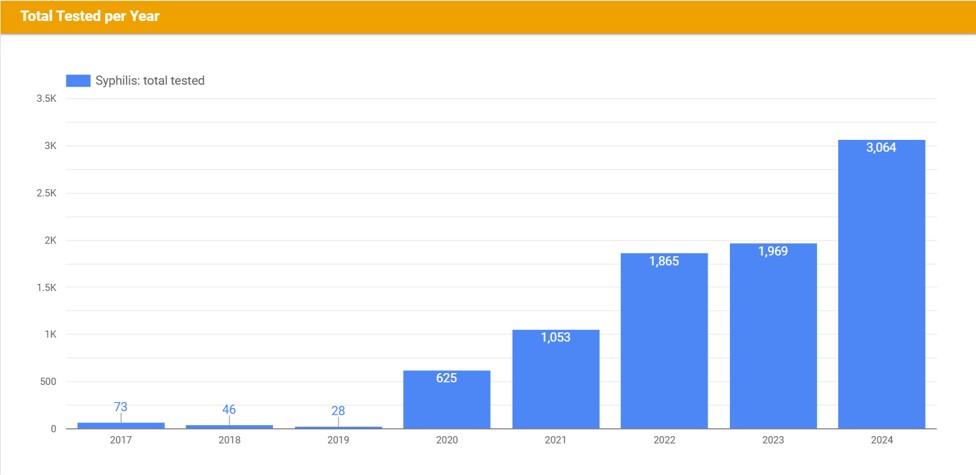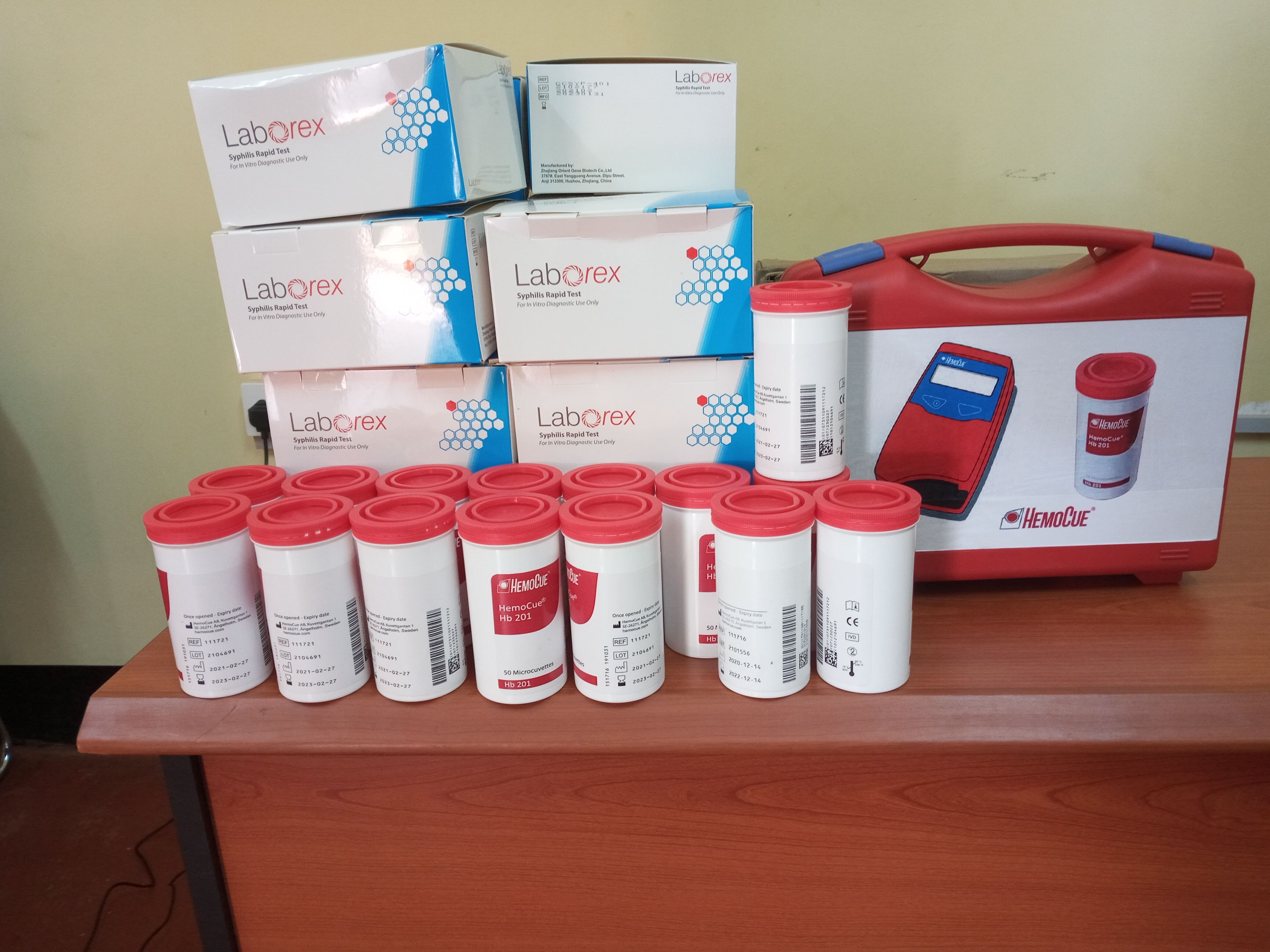Categories:
- ['Health']
Status:
Completed On:
Start Date:
Cost:
Increase Syphilis Testing and Treatment
Mother-to-child transmission of syphilis remains a leading cause of neonatal death and stillbirth, disproportionately affecting women in low-resource settings where syphilis prevalence rates are high and testing rates low. A 2002 study analyzed the births for 22,180 women in Tanzania. 8,456 (83.2%) had been screened for syphilis prenatally. Of those unscreened prenatally who were screened at admission for delivery, 126 RPR-positive and 254 RPR-negative women underwent complete syphilis serologic testing and were recruited into the study. The resultant births showed that 51% of stillbirths, 24% of preterm live births, and 17% of all adverse pregnancy outcomes were attributable to maternal syphilis. Furthermore, without treatment, syphilis can severely damage the heart, brain or other organs, and can be life-threatening.

caption
Today we are observing 2 problems:
-
Most dispensaries focus on testing pregnant women only and are only requesting enough test kits from the government for pregnant women. If the expecting mother tests negative, her partner is not tested. However, the partner may be positive and infect the mother after her negative test which then goes undetected. It is highly likely that cases of syphilis are not being identified nor treated and the community may be experiencing preterm births or stillbirths or other health complications as a result of undiagnosed syphilis.
-
Since dispensaries are focused only on maternal testing, there is a shortfall of test kits to test all those who should be tested. Given government resource constraints, it will take time to ramp up what the government can provide.
We want to increase testing so that all appropriate clients (pregnant women, their partners, and other symptomatic patients or those requesting testing) can receive tests. This project will:
-
Support the dispensaries to test all partners of expectant mothers.
-
Increase requests from the dispensaries to the government for the required number of test kits.
-
Provide additional test kits funded by Karimu for a ramp up period until steady state can be reached where the government provides sufficient test kits. We anticipate that this will take 2-3 years.
caption
Tanzania provides treatment for syphilis and sufficient medication is available for treating patients testing positive.
Karimu will be tracking
-
Pregnancy testing - the number of pregnant women tested, partners tested and test results.
-
Voluntarily testing - the number of male versus female patients tested and test results.
-
Source of test kits - kits funded by the government versus those funded by Karimu.
The project will be complete when every pregnant woman and her partner are tested routinely and the government is able to provide all the kits needed.
December 2022 Update: Since additional kits have been made available pregnant mother and partner testing is tracking almost 1:1. In both Ayalagaya and Arri wards we saw an increase in positive cases detected (20 and 184 respectively), presumably due to the increased availability of kits. In 2022, Karimu provided 25% of the kits in Ayalagaya Ward and 57% in Arri Ward. More detail can be seen on the Karimu Health Dashboard.
Update Dec 2023: Progress was made in 2023 in both wards towards increased government provision of kits. With the opening of the Dareda Kati Health Center and the corresponding attention and focus from the government, plus the expanding population of Ayalagaya, the Dareda Kati Health center alone administered 1338 tests all of which were provided by the government. Only Gajal Dispensary in Ayalagaya needed help from Karimu which provided 77% of the 117 kits used. Across Ayalagaya ward, Karimu provided under 6.2% (down from 25% in 2022) of the total tests administered. In Arri, Karimu provided 42.4% (down from 57% last year) of the 510 tests administered across the three dispensaries: Managha, Dohom, and Tsaayo.
There continued to be good testing of both pregnant women and their partners across both wards. Total cases of syphilis detected are up year to year from 9 in 2022 to 15 in 2023 and shows a slight increase in percentage, but still below 1%. More detail can be seen on the Karimu Health Dashboard Syphilis tab.
Update June 2024: For both the months of May and June all syphilis kits used by our clinics were provided by the government while testing of both pregnant women and their partners remained on track. We will monitor this for another 6 months before closing the intervention.
Update Dec 2024: The syphilis testing and treatment project has been successfully implemented by the medical staff. Since May 2024, all tests have been provided by the government. The number of people tested has risen compared to last year and all pregnant women (and their partners when required by government guidelines) have continued to be tested. We are successfully closing this intervention for Ayalagya and Arri wards.

caption

caption
Benefits:
-
Better birth outcomes
-
Better health outcomes
Cost:
- Karimu: $633
- Government will increase test kits to meet the need
Learn more about Karimu Health Program .



